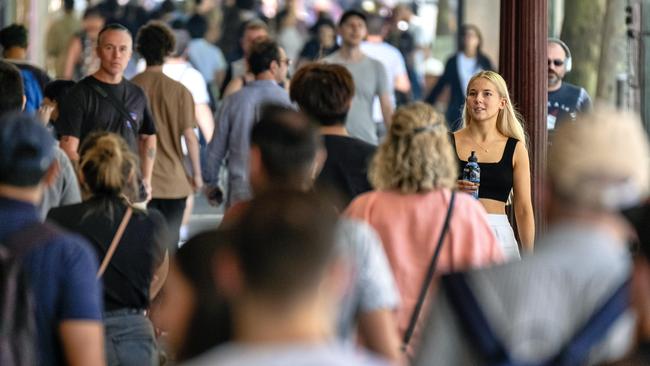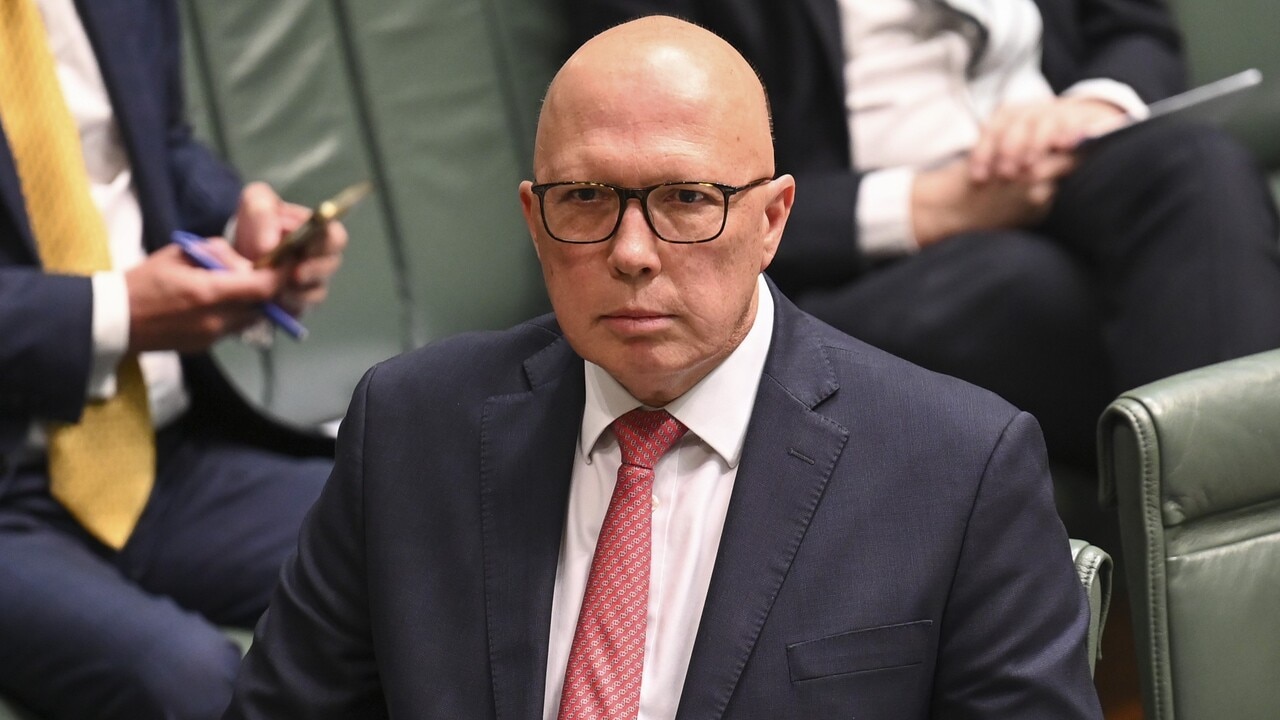Almost half of Australians believe migration is ‘too high’
Nearly half of Australians believe immigration is too high though the economy remains the leading cause of concern amid a broad decline in social cohesion, a new study has found.

Nearly half of Australians believe immigration is too high, though the economy remains the leading cause of concern amid a broad decline in social cohesion, a new study has found.
As the impacts of the Middle East conflict continue to be felt domestically, attitudes towards religious groups have become more negative across the board, though overall support for diversity remains strong, the Scanlon Foundation Research Institute’s 2024 Mapping Social Cohesion report shows.
Of the more than 8000 people surveyed, 49 per cent said they believed immigration levels were too high, a significant increase from last year, when 33 per cent agreed with this view.
Confidence placed in the government and political system has also fallen, as only 33 per cent said they trusted the federal government to do the right thing all or most of the time.
Australian National University demographer James O’Donnell said despite an overall and long-term decline in social cohesion, measures had remained surprisingly stable over the past year, including Australians’ connection with their local communities.
“For a couple of years now, we’ve been recording a bit of a decline in social cohesion, at least, how we measure it,” Dr O’Donnell said.
“The remarkable thing is, in the last 12 months, a lot of measures were actually quite stable, like even with everything that’s going on in the world, that stability was something that took me a little bit by surprise.”
Dr O’Donnell said the increasing worry about migration stemmed from concerns about housing and the economy, not in opposition to diversity, as 71 per cent of Australians surveyed agreed that accepting migrants from all over the world made the nation stronger.
Amid a cost-of-living crisis defined by high interest rates, 41 per cent of adults reported they were “just getting along” financially, while 11 per cent described themselves as poor and were struggling to pay their bills.
“We did see a big increase in the proportion of people who think that the number of migrants coming to Australia is too high at the moment,” Dr O’Donnell said.
“And that partly relates to the fact that migration has been really high in the last little while, since the end of the pandemic border closures, and the fact that both the government and the federal opposition have got measures to try and reduce the level of migration – were probably helping to lead public opinion on those attitudes.”

Attitudes towards faith groups had broadly soured during the past year, with only 37 per cent of Australians surveyed reporting feeling “somewhat positive” towards Christians (from 42 per cent last year); 30 per cent towards Jewish people (from 38 per cent last year); and 18 per cent for Muslims (from 24 per cent last year).
“We have seen an increase in negative attitudes,” Dr O’Donnell said.
“So we think that reflects the conflict in the Middle East, partly because of the polarisation around that.
“The people who are more likely to feel negative towards Muslims are more conservative and older people.
“Negative attitudes towards Jewish people are more nuanced and coming off a lower base. So even though negative attitudes towards Jewish people have became somewhat more common and particularly among progressive-minded people, progressive and younger adults are still more likely to have a negative attitude towards Muslims.
“But (negative attitudes toward Jewish people) also increased mostly for more progressive-minded people, not necessarily younger people, but progressive left-wing people.
“And so we see that kind of polarisation, which I think is probably a bit of a telltale sign that it’s related to the conflict and the aftermath and the political debate around that.”
Citizenship and Multicultural Affairs assistant minister Julian Hill said the report gave the nation “great reason for optimism and pride in our country”.
“Despite all the pressures and strains, social cohesion has held steady and remained strong, and 85 per cent of Australians believe our multicultural society has been good for Australia,” Mr Hill said.
“Like many Australians, the government also is concerned that the level of immigration has been too high, which is why migration numbers are being reduced.
“Importantly, the report also shows Australians strongly support a non-discriminatory program, just at a reduced rate.”







To join the conversation, please log in. Don't have an account? Register
Join the conversation, you are commenting as Logout